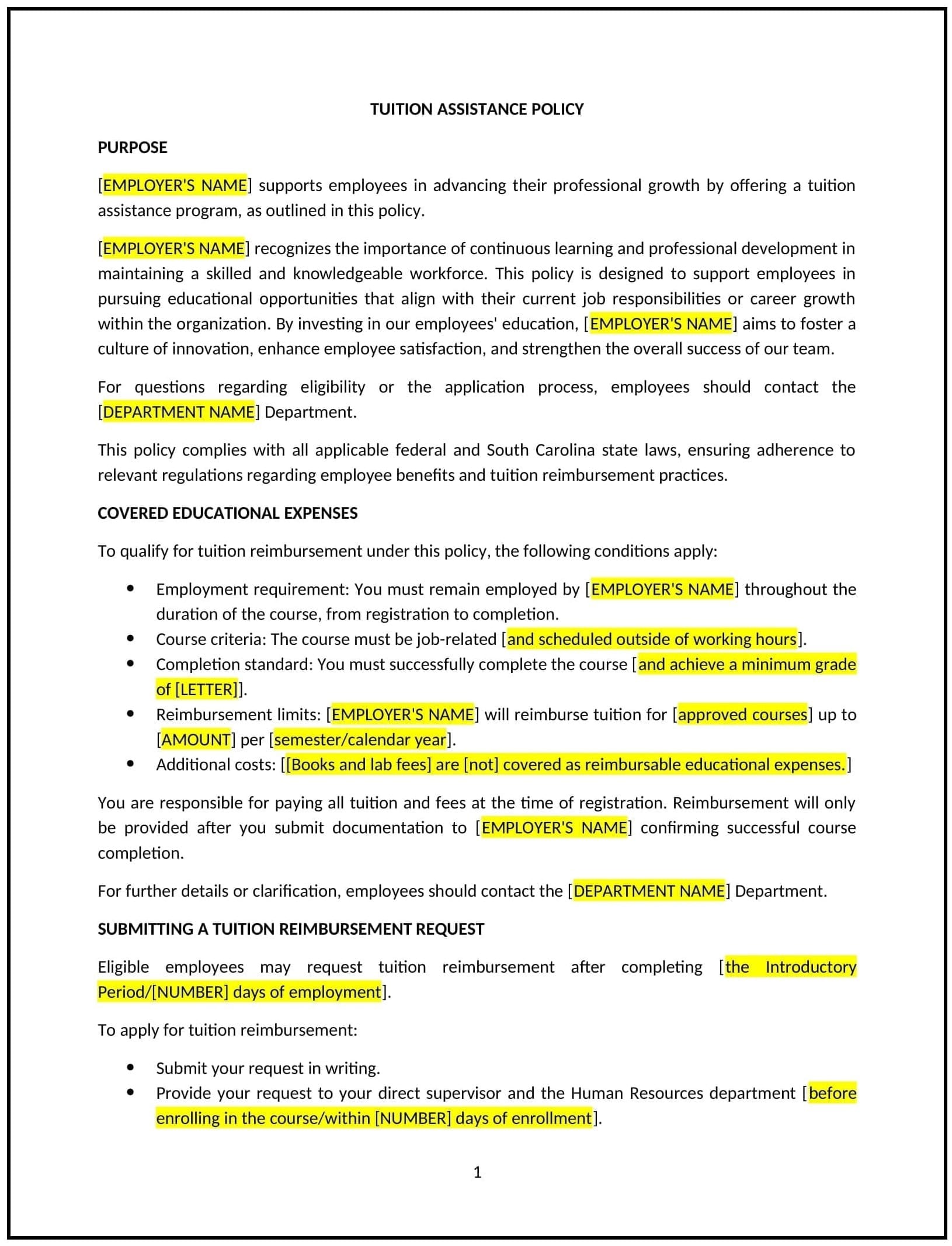Tuition assistance policy (South Carolina): Free template
Got contracts to review? While you're here for policies, let Cobrief make contract review effortless—start your free review now.

Customize this template for free
Tuition assistance policy (South Carolina)
This tuition assistance policy is designed to help South Carolina businesses establish guidelines for supporting employees pursuing further education or professional development. It outlines procedures for requesting tuition assistance, eligibility criteria, and reimbursement processes to encourage continuous learning and skill development.
By adopting this policy, businesses can attract and retain top talent, enhance employee skills, and align with general best practices for workforce development.
How to use this tuition assistance policy (South Carolina)
- Define tuition assistance: Explain what constitutes tuition assistance, such as reimbursement for courses, certifications, or degree programs.
- Establish eligibility criteria: Specify which employees are eligible for assistance, such as those who have worked for a certain period or meet performance standards.
- Set request procedures: Provide steps for employees to request tuition assistance, including required documentation and approval processes.
- Address reimbursement terms: Outline the percentage of tuition costs covered, maximum reimbursement amounts, and conditions for repayment if the employee leaves the business.
- Train managers: Educate supervisors on handling tuition assistance requests and supporting employees’ educational goals.
- Review and update: Assess the policy annually to ensure it aligns with evolving business needs and workforce development standards.
Benefits of using this tuition assistance policy (South Carolina)
This policy offers several advantages for South Carolina businesses:
- Attracts top talent: Demonstrates a commitment to employee growth and development, making the business more appealing to job seekers.
- Enhances employee skills: Supports employees in gaining new knowledge and skills that can benefit the business.
- Aligns with best practices: Provides a structured approach to managing tuition assistance programs.
- Builds employee loyalty: Shows employees that the business values their professional growth and career development.
- Reduces turnover: Encourages employees to stay with the business by investing in their education and future.
Tips for using this tuition assistance policy (South Carolina)
- Communicate the policy: Share the policy with employees and include it in the employee handbook.
- Provide training: Educate managers on handling tuition assistance requests and supporting employees’ educational goals.
- Monitor adherence: Regularly review tuition assistance requests to ensure they are addressed promptly and fairly.
- Address issues promptly: Take corrective action if tuition assistance requests are mishandled or denied improperly.
- Update regularly: Assess the policy annually to ensure it aligns with evolving business needs and workforce development standards.